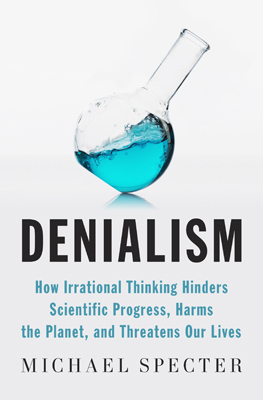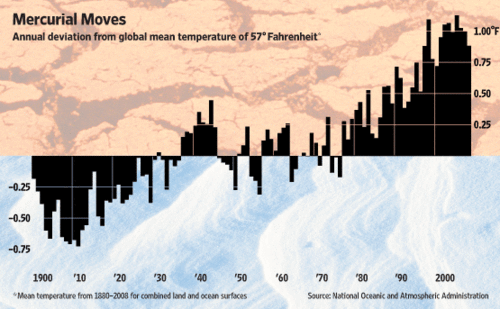In the past, before Rupert Murdoch’s $5.6 billion acquisition of the Wall Street Journal, the paper was greatly respected by its peers for its news coverage, even on climate issues.
This year that has changed. First we had veteran science reporter Robert Lee Hotz’s story on New York City’s sloshy, scary future, which appeared to have barely survived a cleaver-wielding editor.
Then about a week and a half ago, Andrew Revkin, dean of climate reporters for the New York Times, pointed on the blog Dot Earth to a long video interview the Wall Street Journal ran with the famously successful entrepreneur Sir Richard Branson. Branson has invested a great deal of his wealth into an all-out effort to reduce the risks of climate change, including backing a $25 million prize for inventors, but this went completely unmentioned in the lengthy interview, which Revkin called “puzzling.”
And this weekend the WSJ ran a story about global warming that makes a huge issue of a slight decrease in the rate of warming. The story features the best known climate change denier, and implicitly argues that the short-term trend puts the long-term outcome in doubt. To wit:
Scientists who have long questioned man-made global warming cite the temperature drop that began in 2006 as more evidence the models are wrong. “They were predicting warming,” says Richard Lindzen, a climate scientist at the Massachusetts Institute of Technology.
Mr. Lindzen’s work, regarded as leading the research challenging man-made warming, suggests that natural factors such as clouds generally inhibit, rather than intensify, greenhouse-gas warming. He wrote in a recent article that the study from the U.K. admits that the kind of climate model cited in the U.N.’s IPCC report “did not appropriately deal with natural internal variability, thus demolishing the basis for the IPCC’s iconic attribution” linking greenhouse-gas emissions to climate change. He added that “even when all models agree, they can all be wrong.”
The researchers behind those studies strenuously reject that description. But they disagree among themselves on how long the cooling will last. The British paper says warming will resume as early as this year. The German paper says warming won’t resume for perhaps a decade.
Yet if you look at the graph published with the story, the warming trend is unmistakable. Meaning that the text has been massaged beyond factuality.
Sad to see this happen to news coverage at a once-great paper.




